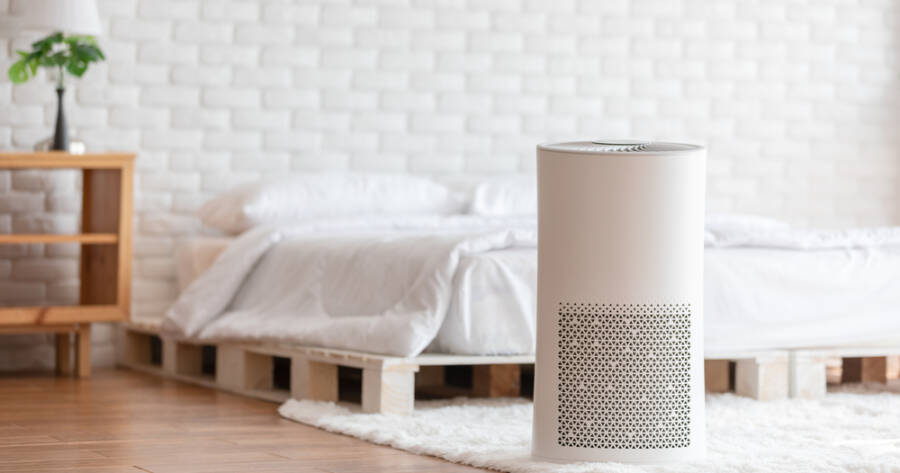The air inside your home may seem harmless, but it often contains invisible pollutants such as dust, pet dander, mold spores, and even chemicals from household products. Over time, breathing in pollutant particles can affect your comfort, sleep, and overall well-being. This is where air purifiers come in. By filtering out harmful substances, they improve the quality of the air you breathe every day. Cleaner air not only supports physical health but also creates a calmer, more relaxing environment.
How Air Purifiers Improve Indoor Air Quality
Air purifiers work by drawing in air, passing it through filters, and releasing it back into the room. High-efficiency filters, often called HEPA filters, are designed to capture very small particles such as pollen, smoke, and bacteria.
By reducing these irritants, air purifiers help you breathe easier, particularly if you have allergies or asthma. Even for those without respiratory issues, cleaner air means fewer airborne particles that can cause irritation, making the home feel fresher and more comfortable.
Supporting Respiratory Health
For people who struggle with allergies, asthma, or frequent congestion, air purifiers can make a noticeable difference. Dust mites, pet hair, and mold are common triggers for respiratory problems, and purifiers can reduce exposure to these allergens.
Studies have shown that HEPA filters can lower indoor allergen levels, which may lead to fewer symptoms like sneezing, coughing, or shortness of breath. By creating a healthier environment, purifiers provide relief not only for those with chronic conditions but also for anyone looking to protect long-term lung health.
Promoting Better Sleep
Poor air quality can interfere with rest. Irritants in the air may cause stuffy noses, dry throats, or snoring, making it harder to fall asleep or stay asleep.
Using an air purifier in the bedroom creates a cleaner environment that supports deeper rest. Some people also find the gentle hum of a purifier soothing, much like white noise, which can help block out other sounds and encourage relaxation. Better sleep contributes to improved mood, sharper focus, and stronger immunity.
Creating a Calming Environment
Clean air doesn’t just impact physical health—it also influences how you feel. Breathing freely without irritation can lower stress and create a sense of calm. Air purifiers remove odors from cooking, pets, or smoke, leaving the room smelling fresher and more pleasant.
This subtle improvement can transform your living space into a more inviting environment, one where you can unwind more easily at the end of the day. For many, the peace of mind that comes from knowing their air is cleaner is a benefit in itself.
Reducing Exposure to Harmful Particles
Beyond everyday dust and pollen, indoor air can also contain harmful substances like volatile organic compounds (VOCs), which are released by cleaning products, paints, or furniture. Long-term exposure to these chemicals may cause headaches, fatigue, or other health issues.
Some air purifiers are designed with filters that capture gases and odors, reducing exposure to these pollutants. This extra layer of protection supports both short-term comfort and long-term wellness, especially in households where chemical products are used regularly.
Breathing Easier Every Day
Air purifiers are more than just gadgets—they are valuable tools for creating a healthier and calmer home environment. By filtering out allergens, irritants, and even harmful chemicals, they make every breath cleaner and more refreshing.
The benefits extend beyond physical health to better sleep, reduced stress, and greater peace of mind. In a world where indoor air is often overlooked, air purifiers provide a simple but powerful way to improve daily life. With one running quietly in the background, every breath can feel like a step toward greater well-being.

